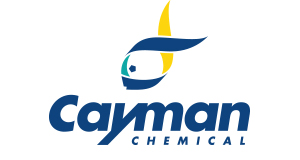Soluble TNF-α (mouse, recombinant)
Soluble TNF-α (mouse, recombinant)
SKU
CAY32069-20
Packaging Unit
20 µg
Manufacturer
Cayman Chemical
Availability:
loading...
Price is loading...
Formulation: Lyophilized from sterile PBS, pH 7.4, with 5% trehalose, 5% mannitol, and 0.01% Tween 80
Purity: ≥98% estimated by SDS-PAGE
Shelf life (days): 365
Notes: TNF-α is a cytokine and a member of the TNF/TNF receptor (TNFR) cytokine superfamily.{54137} TNF-α is produced as a 233-amino acid transmembrane precursor protein from which mature, soluble TNF-α is formed by proteolysis.{54138} Soluble TNF-α is a 157-amino acid polypeptide, cleaved from the precursor protein on the extracellular side of the membrane, that forms bell-shaped homotrimers with the C-termini at the base, each containing three receptor interaction sites.{54139} It is primarily produced by activated macrophages but can also be produced by a variety of other cells, such as T cells, natural killer cells, and osteoblasts.{54139,54140} TNF-α binds to and activates its receptors, TNFR1 and TNFR2, which are associated with intracellular protein complexes that activate caspases to induce cell death, induce p38 MAPK signaling, and initiate NF-κB or AP-1-mediated transcription of immune and inflammatory mediators.{54141} TNF-α promotes inflammation partly by inducing endothelial cells to express adhesion molecules, COX enzymes, and pro-coagulant factors.{54140} Exogenous TNF-α induces death of cancer cells in vitro, as well as disrupts tumor vascularization and induces necrosis in vivo, but it has tumor promoting properties when produced in the cancer microenvironment.{54143,54137} In contrast, it plays a role in resistance to infection, with mice lacking Tnf having an increased susceptibility to certain microbial infections but lacking resistance to leishmania.{54141} Tnf knockout mice are also resistant to certain types of cancer, including chemically induced skin carcinogenesis.{54137} TNF-α increases lung metastases in a mouse model of fibrosarcoma, an effect that can be reduced by an anti-TNF-α antibody. Mice overexpressing Tnf develop an arthritis similar to rheumatoid arthritis in humans.{54142} TNF-α is produced in the inflamed tissues of patients with inflammatory diseases such as rheumatoid arthritis, and neutralizing antibodies to TNF-α reduce the levels of TNF-α in vitro and in mouse models of the disease.{54140} Cayman’s Soluble TNF-α (mouse, recombinant) protein can be used for cell-based assay applications. This protein consists of 157 amino acids and has a calculated molecular weight of 17 kDa.
Purity: ≥98% estimated by SDS-PAGE
Shelf life (days): 365
Notes: TNF-α is a cytokine and a member of the TNF/TNF receptor (TNFR) cytokine superfamily.{54137} TNF-α is produced as a 233-amino acid transmembrane precursor protein from which mature, soluble TNF-α is formed by proteolysis.{54138} Soluble TNF-α is a 157-amino acid polypeptide, cleaved from the precursor protein on the extracellular side of the membrane, that forms bell-shaped homotrimers with the C-termini at the base, each containing three receptor interaction sites.{54139} It is primarily produced by activated macrophages but can also be produced by a variety of other cells, such as T cells, natural killer cells, and osteoblasts.{54139,54140} TNF-α binds to and activates its receptors, TNFR1 and TNFR2, which are associated with intracellular protein complexes that activate caspases to induce cell death, induce p38 MAPK signaling, and initiate NF-κB or AP-1-mediated transcription of immune and inflammatory mediators.{54141} TNF-α promotes inflammation partly by inducing endothelial cells to express adhesion molecules, COX enzymes, and pro-coagulant factors.{54140} Exogenous TNF-α induces death of cancer cells in vitro, as well as disrupts tumor vascularization and induces necrosis in vivo, but it has tumor promoting properties when produced in the cancer microenvironment.{54143,54137} In contrast, it plays a role in resistance to infection, with mice lacking Tnf having an increased susceptibility to certain microbial infections but lacking resistance to leishmania.{54141} Tnf knockout mice are also resistant to certain types of cancer, including chemically induced skin carcinogenesis.{54137} TNF-α increases lung metastases in a mouse model of fibrosarcoma, an effect that can be reduced by an anti-TNF-α antibody. Mice overexpressing Tnf develop an arthritis similar to rheumatoid arthritis in humans.{54142} TNF-α is produced in the inflamed tissues of patients with inflammatory diseases such as rheumatoid arthritis, and neutralizing antibodies to TNF-α reduce the levels of TNF-α in vitro and in mouse models of the disease.{54140} Cayman’s Soluble TNF-α (mouse, recombinant) protein can be used for cell-based assay applications. This protein consists of 157 amino acids and has a calculated molecular weight of 17 kDa.

 Deutsch
Deutsch







